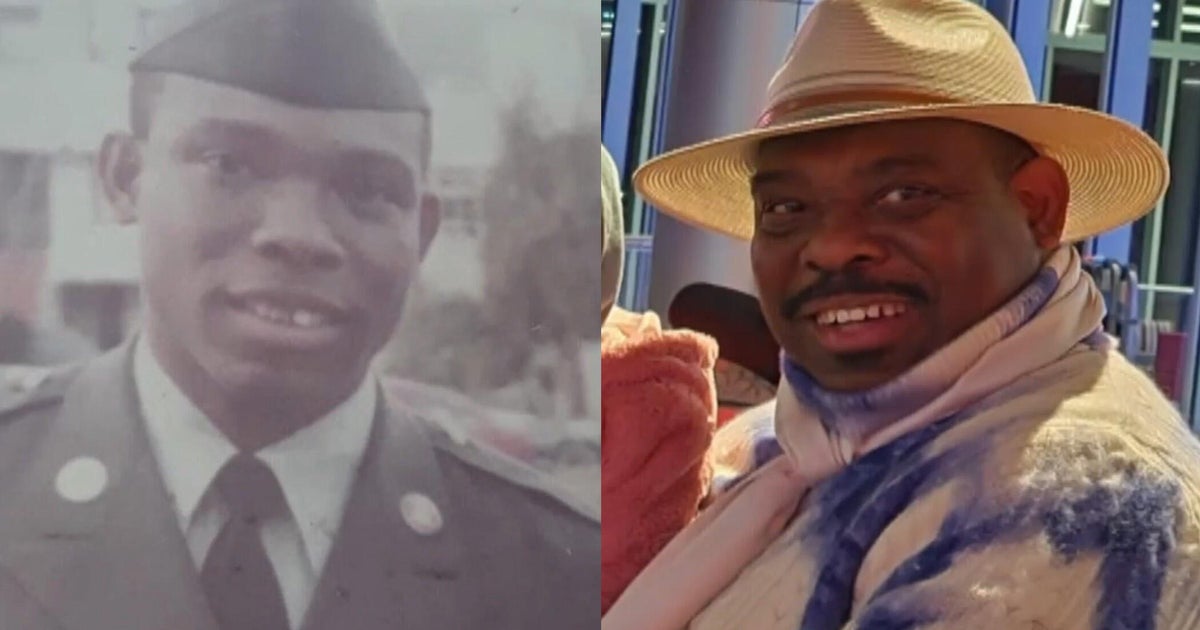I-Team: Veteran's Silver Star Snub
MIAMI (CBS4) - On Veterans Day, 2010, the CBS4 I-Team investigates the case of a local man who played a heroic role in World War II. Today, he owns one of the rarest historical artifacts from that time, while he waits on one of the rarest military commendations which eludes him.
"Still don't know where I'm going," reads Nicholas "Mickey" Brecher as he scans his own handwriting.
Seven decades later Nicholas "Mickey" Brecher still clutches his daily diary.
"Margy my wife, a reminder every time everyday," reads Brecher.
It may seem mundane but Brecher's is no ordinary diary.
"Waiting...waiting… waiting," Brecher read.
The diary chronicles the tedium and horror of World War II from the front lines.
"Resting after three days of K-P," said Brecher as he read from the diary.
The diary charts Brecher's survival of five different allied battle campaigns: from French Morocco, to Tunisia, Algeria to Italy.
"Finally they told us where we're going French Morocco to open the second front," reads the diary.
Historians say this infantryman's first hand perspective, so well preserved today, contains one of the most unique historical records of the day to day grind of a World War II grunt on the ground.
One of those historians is Anthony Atwood.
"To me when I first saw it (the diary), I said there's the jewel," said Atwood.
Atwood is a Kauffman Fellow in History at Florida International University and a Friend of the Miami Military Museum.
"It (the diary) is unique," said Atwood. "It's unique. It belongs in the library of congress and a copy of which should be in the museum here."
The 94-year-old Brecher now lives in north Miami-Dade County with his beloved wife, Margy, whom he wrote to and wrote about in that diary so long ago.
Brecher's memory about those times remains sharp.
"Well the Germans spotted us first," he said of his role in the invasion of Sicily. "They opened up on us."
"They" were German troops defending ground in Sicily as Brecher's Allied troops invaded near the port of Messina.
"We got hammered really hard. Two dead, two wounded," said Brecher.
Brecher rushed to aid one of the wounded soldiers. He said he dug a hole in the cemetery where they were pinned down by gun fire.
"I shoveled a hole. And he was able to get into this place enough to protect himself at the time and then we left," said Brecher.
Soon after leaving, Brecher insisted on returning for the wounded man.
But in doing so, Brecher said he drew even more German fire as he drove a truck back into the cemetery to rescue the soldier left in the graveyard hole.
"Everybody said I was crazy for doing it," said Brecher. "But we weren't crazy because that's our responsibility...my responsibility"
"To save his life?" asked I-Team investigator Stephen Stock.
"To save his life," said Brecher.
For that and for other heroics during the time he served in North Africa and the Italy and Sicily campaigns, Mickey Brecher won several medals including a purple heart and the bronze star.
In fact, Brecher received the bronze star only after submitting paperwork of his actions to the Pentagon 53 years after his time in the service.
Brecher still shows off all the medals proudly.
"This is presidential medal, the purple heart, the bronze star," said Brecher as he took the medals out of a display case at his home.
But that's the other twist in this story.
There's a medal Brecher and his supporters say is missing: a Silver Star.
It's a Silver Star that Brecher believes he should have been awarded by the Army for his heroics in the battle on the shores of Sicily.
It's a Silver Star he believes he's being denied because he's Jewish.
"They (the Pentagon) jipped me alright" said Brecher.
"You believe didn't get what you deserved," asked Stock.
"I didn't, definitely," said Brecher. "That's exactly what I said (back then.) They stole my Silver Star."
Stock put the same question to Atwood.
"Do you think discrimination played a role (in Brecher not getting a Silver Star)?" asked Stock.
"Yeah, I think it might have," said Atwood.
In fact, Congress did find that discrimination played a role during the 1960's, '70's, '80's and even '90's in the awarding of military medals.
That prompted a new law introduced by then West Palm Beach Congressman Robert Wexler called the Leonard Kravitz Jewish War Veteran's Act of 2001.
That law, passed by Congress, requires the Pentagon to review past military records to try to reverse cases of discrimination.
Mickey Brecher says he's been told he will be getting a Silver Star for those actions long ago.
But even today he's still waiting.







